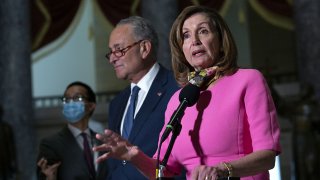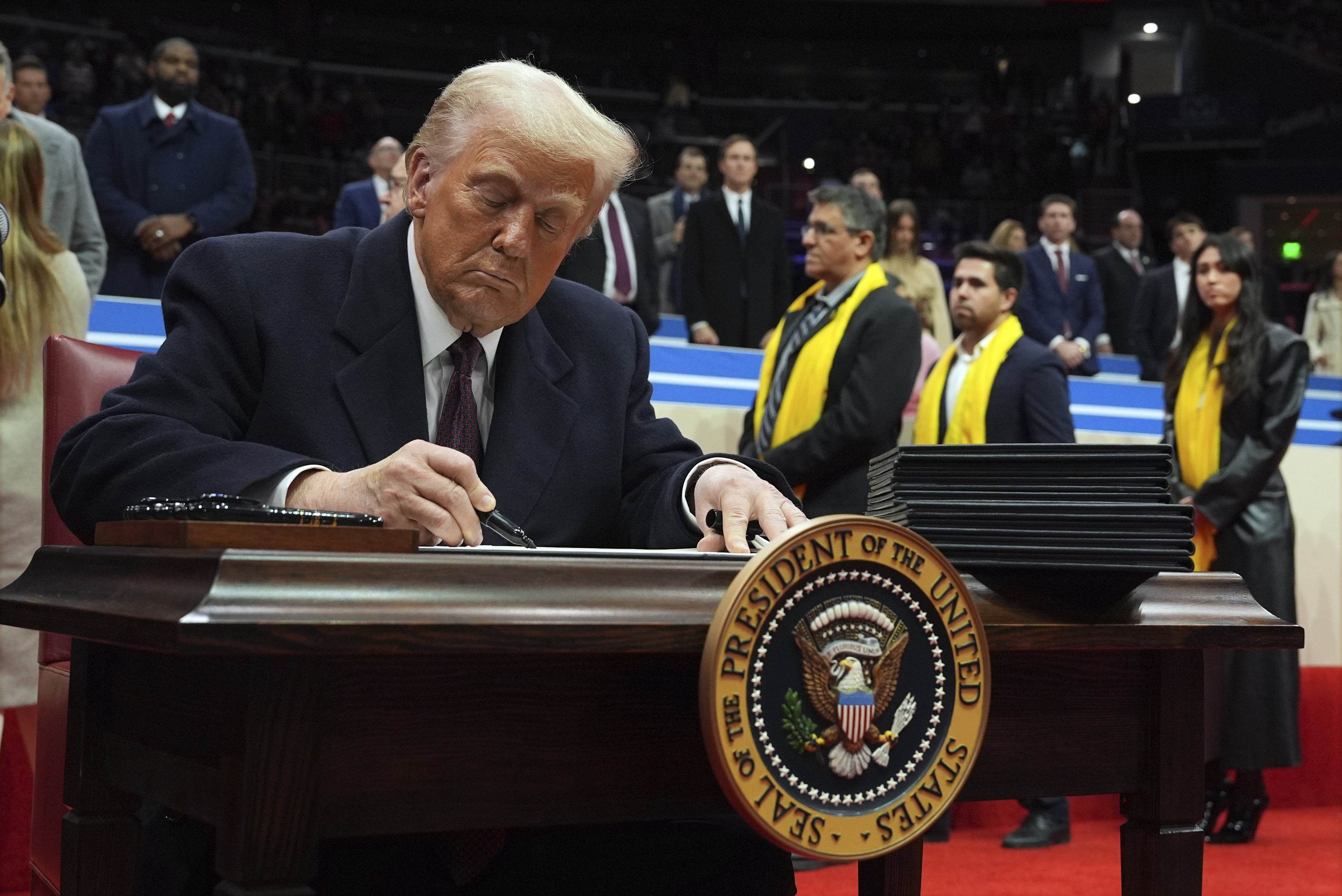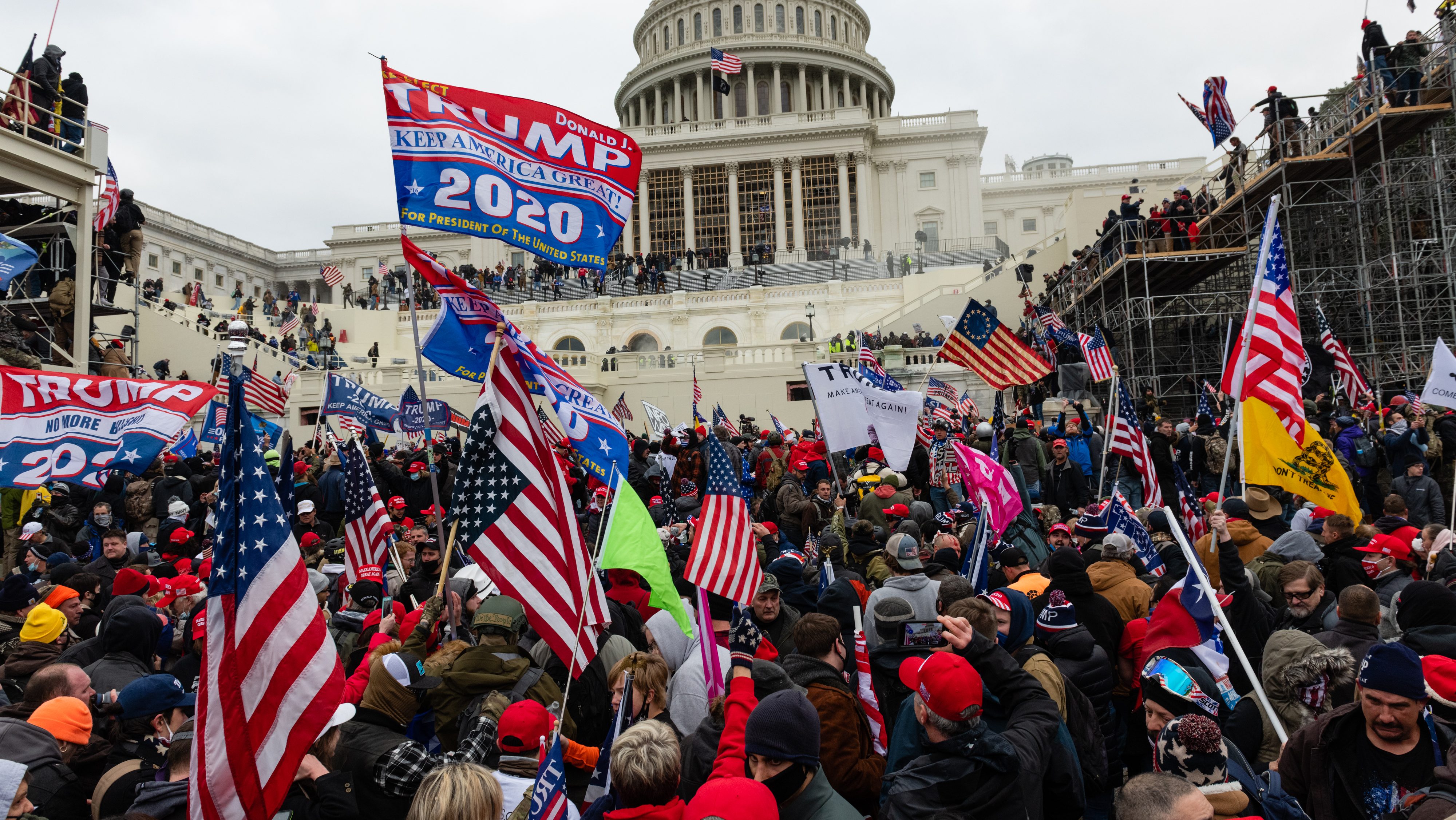
Speaker Nancy Pelosi is not about to blink.
The Democratic leader has been here before, negotiating a deal with the White House to save the U.S. economy, and lessons from the Great Recession are now punctuating the coronavirus talks. With Republicans again balking at big government bailouts, the Democrats believe they have the leverage, forcing President Donald Trump into a politically risky standoff over help for millions of Americans.
“It’s impossible to know whether she has overplayed her hand until we see if there is a COVID package,” says Michael Steel, a former top aide to then-Speaker John Boehner.
Monday brought no new talks between Trump's team and negotiators on Capitol Hill as the president tries a go-it-alone strategy. Over the weekend, he launched a series of executive actions that give the appearance of a White House taking charge but may end up providing little help for ordinary Americans.
Get Tri-state area news delivered to your inbox. Sign up for NBC New York's News Headlines newsletter.
The president's orders seek to reverse the devastating fallout from unemployment assistance, eviction protections and other aid that has expired. But there are limits, and legal pitfalls, in trying to make an end run around the legislative branch.
Pelosi dismissed Trump's proposals Monday as an “illusion” in an interview on MSNBC.
Trump acknowledged he's still quite open to a deal with Congress. “So now Schumer and Pelosi want to meet to make a deal. Amazing how it all works, isn’t it,” he tweeted Monday. “They know my phone number.”
U.S. & World
With Trump now having played his hand, however, Democrats appear in no rush to show theirs.
It will take days, if not weeks, to sort out what Trump intended with his executive actions, as guidance from the administration is sent to the states. Already, the Department of Labor is telling governors that Trump's promised $400 weekly jobless benefit boost will actually amount to just $300 if states are unable to provide the rest, according to information obtained Monday by The Associated Press.
Senate Democratic leader Chuck Schumer dismissed the Trump's administrative actions as “all sizzle and no steak,” held together by “spit and glue.”
In the meantime, countless Americans are already feeling the squeeze. What had been a $600 weekly unemployment benefit boost is gone, as are federal eviction protections. Schools that had been eyeing federal help now face the prospect of reopening on shoestring budgets.
The virus shows no signs of easing, with more than 5 million infections and 160,000 deaths nationwide and stark new evidence that many Americans' jobs may never return.
Treasury Secretary Steven Mnuchin, on a conference call with governors on Monday, said action by Congress remains the administration’s “first choice.”
Mnuchin and Vice President Mike Pence urged the governors to reach out to congressional leaders and push for legislation, according to audio of the call obtained by AP.
“Anytime they want to meet — and they’re wiling to negotiate and have a new proposal — we’re more than happy to meet,” Mnuchin said later at the White House. He confirmed he has not spoken to the Democratic leaders since talks collapsed Friday.
Pelosi has been here before, at the start of the last recession, when George W. Bush's Treasury Secretary Hank Paulson dropped to a knee at the White House and all but begged her not to let a financial rescue plan fail in Congress.
Democrats provided the bulk of the votes in 2008 for Bush's bank bailout and, with the majority in both the House and Senate, they also approved President Barack Obama's economic recovery plan in 2009. They often see that era as mopping up after a Republican president.
Now, facing a far greater crisis — the raging virus and economic shutdown — Pelosi is standing firm.
She told The Associated Press earlier this year that Mnuchin is a “good listener” and they have a good rapport, having negotiated a relief package in March.
But she said, “When President Bush was president he would say to me, 'Secretary Paulson speaks for me.' This case, I don’t – I’m not sure."
Negotiations over the latest coronavirus bill shifted with the arrival of Mark Meadows, the president's new chief of staff, a conservative former head of the House Freedom Caucus who is widely seen as a counter-force to Mnuchin.
During days of closed-door talks, Meadows often declares one issue after another a “nonstarter,” according to an aide granted anonymity to discuss the private sessions.
Another aide said both Meadows and Mnuchin used that phrase several times as they pushed back against the Democratic proposals.
Pelosi has said repeatedly that Trump and the Republicans don't grasp the gravity of the situation facing the nation.
She and Schumer have put their latest compromise offer on the table, dropping their $3 trillion-plus package of relief by $1 trillion to $2.5 trillion, and asking the White House to do the same, raising its $1 trillion proposal to at least $2 trillion. That was rejected last week.
Senate Majority Leader Mitch McConnell accused the Democrats of “hostage taking.”
The GOP leader, who has chosen to stay on the sidelines in the talks, has a weakened hand because unlike the Democratic leaders, who have most of their rank-and-file behind them, his Republican majority is fractured. Almost half the GOP senators prefer no new aid at all.
“Democrats think they smell an opening,” he said.
McConnell nevertheless can play an influential role if and when he decides to bring the votes he's sure of to the table. That could lead to one path for an eventual deal.
Associated Press writer Alan Suderman in Richmond, Virginia, contributed to this report.



